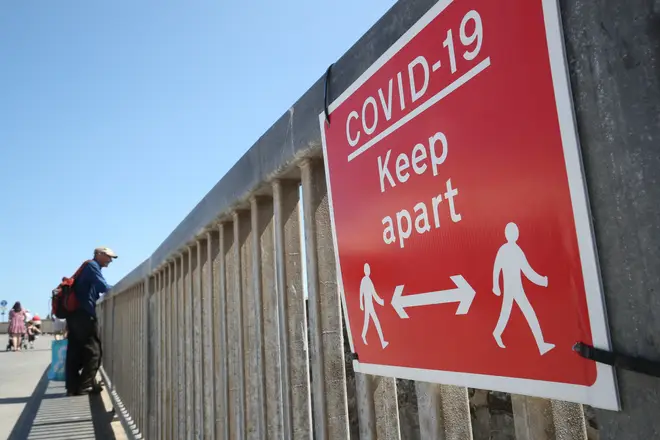
Ben Kentish 10pm - 1am
25 June 2020, 16:49

A simple saltwater solution could help fight early coronavirus symptoms and progression of the virus, according to new research.
Scientists at the University of Edinburgh believe sea salt could boost the antiviral defence of cells that kicks in when you are affected by a cold.
The new study builds on a trial published in 2019, which found participants who gargled and cleared their nose with a saltwater solution had fewer coughs and less congestion.
The researchers will now investigate whether the same solution can benefit those with Covid-19 symptoms and are recruiting adults in Scotland to take part in trials.
Professor Aziz Sheikh, director of the university's Usher Institute, said: "We are now moving to trial our saltwater intervention in those with suspected or confirmed Covid-19, and hope it will prove to be a useful measure to reduce the impact and spread of the infection.
"It only requires salt, water and some understanding of procedure so should - if found to be effective - be easy and inexpensive to implement widely."
Listen & subscribe: Global Player | Apple Podcasts | Google Podcasts | Spotify
Half of the participants in the original pilot study - known as the Edinburgh and Lothians Viral Intervention Study, or ELVIS - gargled saltwater while the other dealt with a cold as they normally would.
Those joining the new trial will be asked to follow government advice on hygiene and self-isolation with one group again asked to gargle and clear their nose with saltwater.
The news comes after it was revealed that the drug dexamethasone can cut the risk of death for patients on a ventilator by a third and those on oxygen by a fifth.
It has been heralded as a "breakthrough" and came as the result of work carried out by a team at Oxford University.
Chief Scientific Adviser to the Government Sir Patrick Vallance said the Oxford vaccine study was "probably" the "most advanced" in the world.
Scientists have also theorised that immunising children with Covid-19 vaccine, even though they are at low risk the disease, could be an "indirect" way to protect older people for whom the vaccine may not be as effective.
Speaking at the Lords Science and Technology Committee, Prof Peter Openshaw, from Imperial College London, said: "Sometimes it is possible to protect a vulnerable group by targeting another group and this, for example, is being done with influenza.
"In the past few years, the UK has been at the forefront of rolling out the live attenuated vaccine for children."